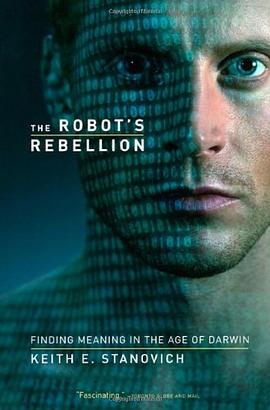The Robot's Rebellion
内容简介
The idea that we might be robots is no longer the stuff of science fiction; decades of research in evolutionary biology and cognitive science have led many esteemed thinkers and scientists to the conclusion that, following the precepts of universal Darwinism, humans are merely the hosts for two replicators (genes and memes) that have no interest in us except as conduits for replication. Accepting and now forcefully responding to this disturbing idea that precludes the possibilities of morality or free will, among other things, Keith Stanovich here provides the tools for the "robot's rebellion," a program of cognitive reform necessary to advance human interests over the limited interest of the replicators. He shows how concepts of rational thinking from cognitive science interact with the logic of evolution to create opportunities for humans to structure their behavior to serve their own ends. These evaluative activities of the brain, he argues, fulfill the need that we have to ascribe significance to human life. Only by recognizing ourselves as robots, argues Stanovich, can we begin to construct a concept of self based on what is truly singular about humans: that they gain control of their lives in a way unique among life forms on Earth - through rational self-determination.
......(更多)
作者简介
Keith E. Stanovich is Emeritus Professor of Applied Psychology and Human Development at the University of Toronto and former Canada Research Chair of Applied Cognitive Science. He is the author of over 200 scientific articles and seven books. He received his BA degree in psychology from Ohio State University in 1973 and his PhD in psychology from the University of Michigan in 1977.
......(更多)
目录
......(更多)
读书文摘
如果信念不一致性被检测到,就可能是一个信号,信念形成过程不是最优操作,即在一个人的知识基础中存在了两种相互矛盾的信念;此外,欲望不一致性也是一个信号,行为决定过程将可能导致非最优化的目标被满足。
根据你有多少(物理的和心理的)资源可用,在这个世界上,以一种你能得到自己最想要结果的方式行动。
......(更多)






